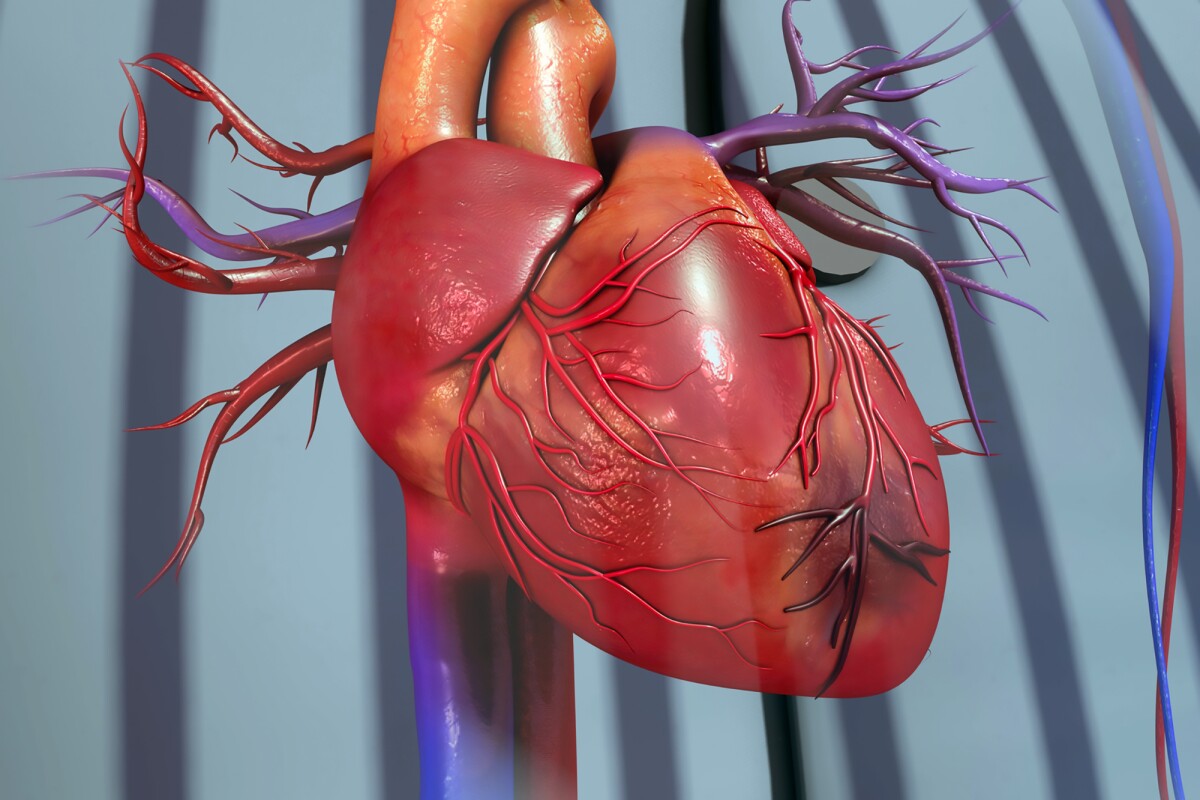Why do Men Experience More Severe Heart Attacks than Women?

Depositphotos
A recent study has identified testosterone as the reason men suffer greater heart muscle damage after a heart attack than women. Researchers have also found a potential solution using an existing drug.
The World Heart Federation’s World Heart Report 2023 highlighted that heart disease has remained the leading cause of death worldwide for decades, with cases continuing to rise. In 2019, the WHF reported that age-standardized cardiovascular disease death rates were higher in men than in women across high-income countries.
Previous studies have shown that men typically experience larger and more severe heart attacks than women, but the underlying mechanism remained unclear. Now, researchers at the University of Gothenburg in Sweden have identified testosterone as a key factor driving this sex-based difference in heart attack damage.
Testosterone Amplifies Inflammation, Increasing Heart Injury in Male Mice
“We found that testosterone amplifies the inflammatory response in male mice, leading to greater heart injury,” said Åsa Tivesten, professor of medicine at the Sahlgrenska Academy and senior physician at Sahlgrenska University Hospital. “Testosterone clearly plays a role in worsening inflammation after a heart attack.”
A heart attack, or myocardial infarction (MI), usually occurs when a coronary artery becomes blocked, cutting off oxygen-rich blood to a portion of the heart muscle. This causes the affected cells to die within minutes.
In response, neutrophils—white blood cells that serve as the immune system’s first line of defense—are rapidly released from the bone marrow and recruited to the damaged area, triggering inflammation to clear dead cell debris. The body’s initial response in the days following an MI determines the extent of muscle damage and influences recovery outcomes.
To examine sex-based differences in heart attack response, researchers induced an acute MI in male and female mice by blocking a coronary artery for 45 minutes, then restoring blood flow (reperfusion) to trigger inflammation.
After 24 hours, male mice had higher neutrophil levels and larger infarct areas than females. Additionally, their testosterone levels were 15 times higher than those of female mice. In humans, male testosterone levels are typically more than ten times higher than female levels.
Testosterone’s Impact on Neutrophils and Heart Damage Confirmed in Castrated Mice
To confirm testosterone’s role in post-MI neutrophil levels, the team compared castrated and uncastrated male mice. Castrated males had lower testosterone levels after a heart attack and exhibited neutrophil levels similar to post-MI female mice, along with smaller infarct sizes.
When given a dose of testosterone, castrated mice showed increased blood levels of troponin I—a marker of heart muscle damage—compared to castrated mice that did not receive testosterone. Troponin I is routinely used in humans to assess heart attack severity.

Depositphotos
Tocilizumab Reduces Testosterone-Driven Inflammation and Heart Damage in Men
To find a way to reduce the testosterone-driven inflammatory response, researchers analyzed data from a clinical trial where patients experiencing their first acute heart attack were treated with tocilizumab, a rheumatoid arthritis drug.
Tocilizumab is a biological disease-modifying antirheumatic drug (bDMARD) that blocks interleukin-6 (IL-6) receptors, preventing this signaling protein from activating the immune system after events like a heart attack. This, in turn, helps lower inflammation. The study found that administering tocilizumab before restoring blood flow significantly reduced neutrophil levels and infarct size, with a more pronounced effect in men than in women
“Our research reveals a previously unknown link between testosterone and neutrophil activity,” said Tivesten. “These findings highlight the need to consider sex differences in both research and medical treatment. Ignoring these differences could lead to less effective therapies, particularly for women, who are often underrepresented in clinical studies.”
Read the original article: New Atlas
Read more: Holiday Heart Syndrome: A Significant Health Risk Tied to Festive Drinking










